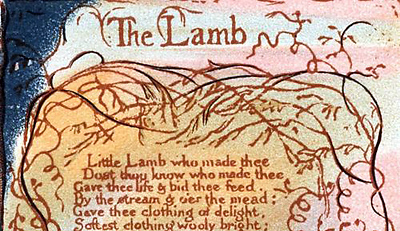
 HILTON HEAD—Poetry is not just a form of literature that can rhyme or not rhyme. Some people have discovered the power of the medium to enrich lives, encourage creativity and, in many cases, bring others closer to God.
HILTON HEAD—Poetry is not just a form of literature that can rhyme or not rhyme. Some people have discovered the power of the medium to enrich lives, encourage creativity and, in many cases, bring others closer to God.
Once a month, a group from St. Francis by the Sea Church meets to enjoy the power of poetry as both written and spoken word.
For many years, Bob Hamel read poetry aloud for residents at area nursing homes and assisted living centers. During a ministry fair a few years ago, St. Mary of Namur Sister Kathleen Kane, pastoral associate for St. Francis, asked him if he would consider starting a poetry group at the parish.
Now, on the first Monday of each month, people come to read their favorite poems aloud, and occasionally share poems they’ve written.
Hamel, who moved to Hilton Head from New York 11 years ago, said he started writing poetry when he was in his 50s and enjoys sharing his love of it with others.
He leads the church group, continues to read to nursing home residents, and also teaches poetry classes for fifth graders at St. Francis School.
Hamel said the poetry-reading group offers people a chance to share and learn about different styles and writers. He is a published poet who occasionally brings in some of his works, and said members are encouraged to do the same.
Some of the original works have religious or moral themes, but Hamel said the art form itself has a spiritual aspect.
“Poetry, if you look at it from the religious perspective, is really the closest thing to prayer, especially if it’s written from the heart,” he said.
Sister Kathleen attends the meetings regularly and occasionally shares her own writing. She said her love of poetry stems from childhood.
The religious sister said the group offers members a chance to socialize, discuss a variety of topics, and enhance their faith through the experience of reading and appreciating verse. At recent meetings, members have tackled everything from rhyming poems by Longfellow to Shakespeare’s sonnets.
“Any time you bring parishioners together, and any time you foster a love of language and its dimensions, you’re enhancing people for worship,” Sister Kathleen said. “There’s such beauty in liturgy, the spoken word and the ritual. And all the creative arts, especially literature with its symbolic language, develop a capacity for appreciation of the liturgy in people.”
Marie Mahoney compares the poetry group to a book club because members spend time talking about the style, the author and the meaning of what they’ve read.
“I always liked poetry, so when I heard about the group I decided I’d try it out,” she said. “I’m really a novice at it, but I’m liking the group more and more. I get a lot of enjoyment out of it and so does everyone else there. We all have an interest in poetry in common. That’s sort of our little niche.”
Jack Young said he enjoys having a chance to share his love of poets such as Longfellow and Kipling with others.
“There’s a real sense of camaraderie with people who love poetry as much as I do,” he said.
The poetry-reading group is on hiatus for the summer, and meetings will resume in October.
While members of the Hilton Head group share their love of verse with each other, a retired priest living in the Upstate uses his writing to share truths about the Catholic faith.
Father Charles J. Snopek, who lives in Lyman, has written a book of poetry about elements of Catholicism.
He told The Miscellany that he started writing verse as a child. Later in life he taught workshops on the side when he worked as an English professor.
He said his feelings about poetry come from the Greek philosopher Aristotle, who said the job of a poet or artist is to elevate the human spirit and convey beauty.
“My goal has been to take the truths of the Catholic Church and the Catholic faith, and to turn them into poetry people could read and be inspired by,” Father Snopek said.
His writing follows the strict 14-line form of the sonnet. Father Snopek has written a series of sonnets inspired by the major feast days of the liturgical year, and others inspired by the last words of Jesus in the Gospels, Mary, the incarnation, and the importance of the penitential season of Lent.
Recently, the priest revised some of his earlier verses, and is writing essays. He said poetry remains his favorite form because, in many ways, it comes so close to prayer.
“The poet must be introspective,” he said. “There is no alternative but to draw on your own being if you write poetry.
“And introspection is absolutely a form of prayer. When you pray the ‘Our Father,’ for instance, that’s a prayer that is essentially an introspective focus on our submission to the will of God,” he said.
Anyone interested in obtaining a copy of Father Snopek’s “Roman Catholic Sonnets” can e-mail him at csnopek@bellsouth.net.
